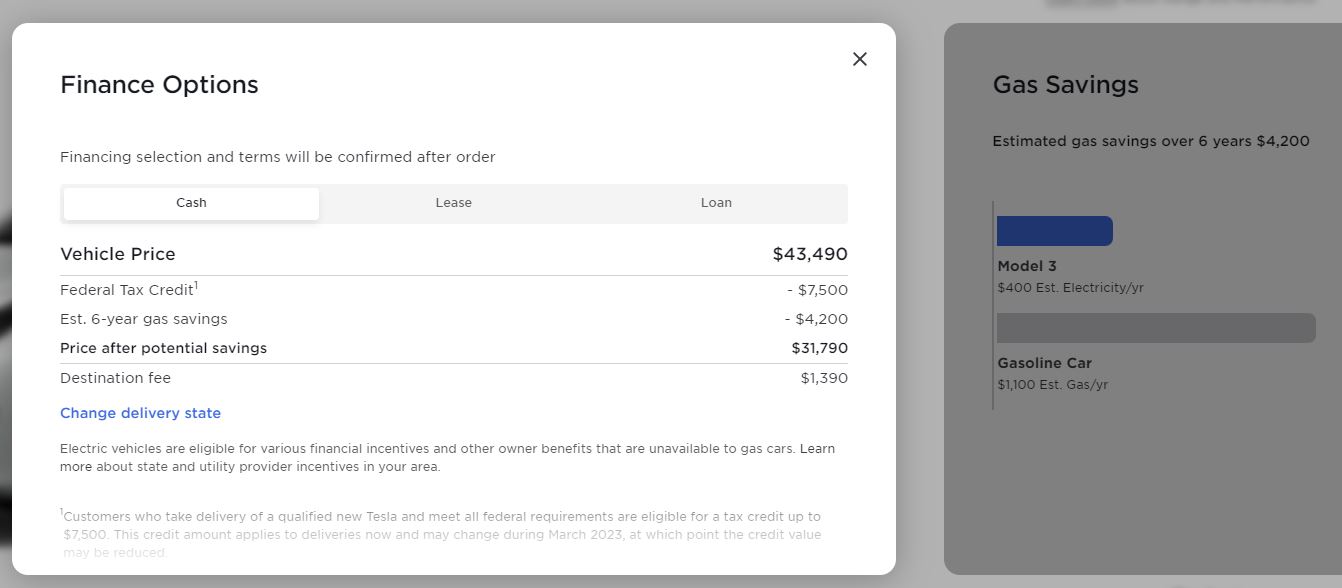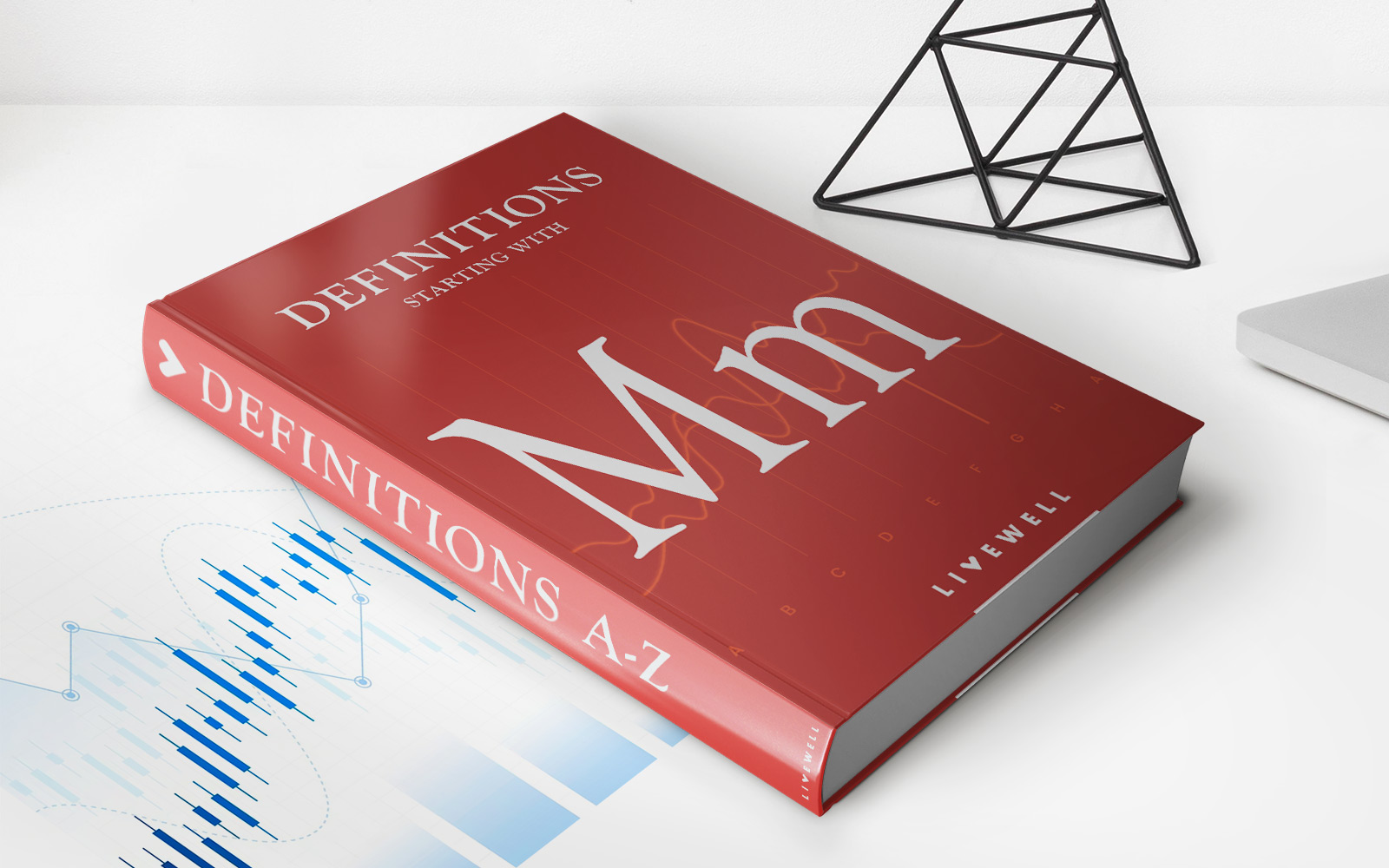

Finance
What Is A Passbook Savings
Published: January 16, 2024
Discover what a passbook savings account is and how it can benefit your personal finance goals. Start saving and earning interest today!
(Many of the links in this article redirect to a specific reviewed product. Your purchase of these products through affiliate links helps to generate commission for LiveWell, at no extra cost. Learn more)
Table of Contents
Introduction
Welcome to the world of passbook savings accounts! If you’re looking for a safe and secure way to save your hard-earned money while earning a modest return, then a passbook savings account may be just what you’re looking for. In this article, we’ll explore what exactly a passbook savings account is, how it works, and the advantages and disadvantages of this type of savings account.
A passbook savings account is a classic and traditional banking product that has been around for decades. It provides individuals with a simple and straightforward way to save money and keep track of their transactions. This type of account is commonly offered by banks and credit unions and is especially popular with conservative savers who prefer a low-risk investment option.
So, what sets a passbook savings account apart from other types of savings accounts? Well, the defining feature of a passbook savings account is, you guessed it, the passbook itself. This physical book serves as the official record of your account activity. It contains your account information, such as your name, account number, and the details of your deposits and withdrawals.
With a passbook savings account, you have the convenience of being able to physically visit your bank or credit union and have your passbook updated with each transaction. This is a tangible way to keep track of your savings progress, giving you a sense of control over your finances. It’s like having a personalized financial diary that reflects your journey towards your savings goals.
Passbook savings accounts are often favored by individuals who prefer a hands-on approach to managing their finances. They enjoy the personal interaction with their bank or credit union, and the reassurance of having a physical record of their transactions. Additionally, passbook savings accounts are a great option for those who may have limited or no access to online banking services.
Definition of Passbook Savings
Passbook savings is a type of savings account that provides a physical passbook, which serves as the official record of the account holder’s transactions. This traditional banking product allows individuals to deposit and withdraw money at their local bank or credit union, with each transaction being recorded in the passbook.
A passbook savings account is typically opened with an initial deposit and requires the account holder to maintain a minimum balance. The interest earned on the account is usually compounded on a daily or monthly basis, providing a small return on the deposited funds. The interest rates for passbook savings accounts are generally lower compared to other types of savings accounts, such as high-yield savings or money market accounts.
The passbook itself contains important information related to the account, including the account holder’s name, account number, and the date and amount of each deposit and withdrawal. It serves as a physical record of the account activity, allowing individuals to keep track of their savings progress in a tangible way.
One of the key features of passbook savings accounts is the ability to have personal interaction with the bank or credit union staff. Account holders can visit their local branch in person to carry out transactions, update their passbook, or seek assistance with any account-related inquiries. This aspect of passbook savings accounts can be particularly appealing to individuals who prefer face-to-face interactions and appreciate the convenience of having a local branch.
It’s important to note that passbook savings accounts may have certain limitations and restrictions. For example, there may be limits on the number of withdrawals or transfers that can be made within a specific time frame, and fees may be charged for excessive transactions. Additionally, passbook savings accounts may not offer online banking features, limiting access to account information and transactions through digital channels.
Overall, passbook savings accounts are a traditional savings option that appeals to individuals seeking a hands-on approach to managing their finances. The physical passbook provides a sense of control and accountability, allowing account holders to monitor their savings journey and keep track of their financial progress.
How Passbook Savings Works
Passbook savings accounts work in a straightforward manner, making them accessible and easy to understand for account holders. Here’s a breakdown of how passbook savings accounts typically operate:
- Account Opening: To open a passbook savings account, you’ll need to visit a bank or credit union and provide the necessary identification and documentation. The account can usually be opened with an initial deposit, which may vary depending on the financial institution.
- Passbook Issuance: Once your account is open, the bank or credit union will provide you with a physical passbook. This passbook is unique to your account and contains your personal information, account number, and designated space for recording transactions.
- Deposits: You can make deposits into your passbook savings account by visiting the bank or credit union and presenting your passbook along with the funds you wish to deposit. The bank staff will update your passbook, recording the date and amount of the deposit.
- Withdrawals: Similarly, when you need to withdraw money from your passbook savings account, you’ll visit the bank or credit union and present your passbook. The bank staff will verify your identification and update your passbook to reflect the withdrawal amount and date.
- Interest Earnings: Passbook savings accounts typically earn a modest amount of interest on the deposited funds. The interest is often calculated on a daily or monthly basis and added to the account balance. The exact interest rate may vary depending on the financial institution and current market conditions.
- Passbook Updates: Each time you make a deposit or withdrawal, the bank or credit union will update your passbook with the transaction details, including the new account balance. This way, you can track your savings progress and have a record of all activity within the account.
It’s important to note that passbook savings accounts may have certain limitations and restrictions. For example, there may be a minimum balance requirement that needs to be maintained in the account to avoid fees or account closure. Additionally, passbook savings accounts may have restrictions on the number of withdrawals or transfers that can be made within a specific time period.
Overall, passbook savings accounts provide a convenient and tangible way to save money while having a physical record of transactions. This traditional banking product appeals to individuals who prefer personal interactions with their financial institution and want a hands-on approach to managing their savings.
Advantages of Passbook Savings
Passbook savings accounts offer several advantages that make them an appealing option for individuals looking to save and manage their money in a traditional and straightforward manner. Here are some of the advantages of passbook savings:
- Tangible Record: One of the key benefits of passbook savings accounts is the physical passbook itself. This serves as a tangible record of all your transactions, including deposits, withdrawals, and interest earnings. Having a physical record can help you stay organized and track your savings progress more effectively.
- Hands-on Approach: Passbook savings accounts allow for personal interaction with the bank or credit union staff. You have the option to visit your local branch to conduct transactions, update your passbook, or seek assistance with any account-related inquiries. This hands-on approach can be comforting for individuals who prefer face-to-face interactions and appreciate the convenience of having a local branch.
- Low-Risk Investment: Passbook savings accounts are considered low-risk investments. The funds deposited into the account are typically insured by the government up to a certain limit, providing an added layer of security. This makes passbook savings accounts a reliable option for individuals who prioritize capital preservation and want to avoid the volatility associated with higher-risk investments.
- No Monthly Fees: Many passbook savings accounts do not charge monthly maintenance fees. This is beneficial for account holders who want to avoid paying ongoing fees simply for keeping their money in the account. However, it’s important to check with your specific bank or credit union to understand their fee structure.
- Accessibility: Passbook savings accounts are widely available at banks and credit unions, making them easily accessible to individuals. This accessibility allows you to open an account and conduct transactions at the branch, providing a convenient way to manage your savings without relying solely on digital channels.
- Education and Financial Literacy: Passbook savings accounts can be a valuable tool for teaching financial responsibility and promoting financial literacy. The physical passbook can help individuals, especially children and young adults, develop healthy money management habits by visually seeing their savings grow and understanding the impact of deposits, withdrawals, and interest.
Overall, passbook savings accounts offer a combination of simplicity, security, and personal control that can be appealing to those seeking a traditional savings approach. The physical passbook and personal interactions with the bank or credit union staff provide a level of comfort and accountability, helping individuals stay on track with their savings goals.
Disadvantages of Passbook Savings
While passbook savings accounts offer certain advantages, there are also some disadvantages to consider before choosing this type of savings account. Here are some of the common drawbacks associated with passbook savings:
- Low Interest Rates: Passbook savings accounts typically offer lower interest rates compared to other types of savings accounts, such as high-yield savings or money market accounts. This means that the return on your savings may be minimal, especially in an environment of low-interest rates. If you’re looking to maximize your earnings, you may want to explore alternative savings options.
- Limited Access to Funds: Unlike online savings accounts or checking accounts, passbook savings accounts may have limitations on accessing funds. For example, you may need to visit the bank or credit union in person to make withdrawals or transfers. This can be inconvenient if you need immediate access to your money or prefer the flexibility of managing your funds online.
- No Online Banking Features: Passbook savings accounts are often limited in terms of online banking features. This means you may not have access to real-time account information, online transfers, or the ability to pay bills directly from your account. If you prefer the convenience of managing your finances digitally, a passbook savings account may not be the most suitable option.
- Potential Fees: While many passbook savings accounts do not charge monthly maintenance fees, some financial institutions may impose fees for certain activities, such as excessive withdrawals or falling below the minimum balance requirement. It’s important to carefully review the fee structure of any passbook savings account you’re considering to avoid unexpected charges.
- Opportunity Cost: Because passbook savings accounts offer lower interest rates, there is an opportunity cost involved. By keeping your funds in a passbook savings account, you may miss out on potentially higher returns that can be achieved through other investment vehicles. Assessing your financial goals and considering alternative savings options can help determine if passbook savings align with your long-term objectives.
- Lack of Flexibility: Passbook savings accounts may not provide the flexibility needed for certain financial activities. For example, if you need to make frequent transfers or set up automatic payments, a passbook savings account may not be the most convenient option. Other types of accounts, such as checking or online savings accounts, may offer greater flexibility and ease of use.
When considering a passbook savings account, it’s important to weigh these disadvantages against the advantages to determine if this type of account aligns with your financial needs and preferences. Assessing your goals, financial situation, and banking priorities can help you make an informed decision.
Comparison with other Savings Accounts
When deciding on the type of savings account that best suits your needs, it’s essential to consider the alternatives to passbook savings accounts. Here’s a comparison of passbook savings accounts with other popular savings account options:
- High-Yield Savings Accounts: High-yield savings accounts offer higher interest rates compared to passbook savings accounts. They often provide the convenience of online banking, allowing easy access to funds and the ability to transfer money between accounts. However, high-yield savings accounts may require a higher minimum balance and have more stringent eligibility criteria.
- Certificate of Deposit (CD): CDs are time-fixed deposit accounts that offer higher interest rates in exchange for locking your funds for a specific term. CDs typically have higher minimum deposit requirements compared to passbook savings accounts, and early withdrawal may result in penalties. They are suitable for individuals who don’t need immediate access to their savings and are willing to invest for a fixed period.
- Money Market Accounts (MMAs): MMAs are savings accounts that present a higher interest rate than passbook savings accounts while providing limited check-writing capabilities. MMAs generally require a higher minimum balance and may have transaction limits. They are suitable for individuals who want higher returns than passbook savings without the commitment of a CD.
- Online Savings Accounts: Online savings accounts offer competitive interest rates, convenient online access, and often have no monthly fees. They are suitable for individuals comfortable with managing their finances digitally and who prioritize easy access to their funds. However, online savings accounts may lack the personal interaction and physical passbook aspect of passbook savings accounts.
- Traditional Checking Accounts: While checking accounts are not typically intended for long-term savings, they offer easy access to funds for daily expenses, bill payments, and transactions. Unlike passbook savings accounts, checking accounts usually have lower interest rates, if any. They are suitable for individuals who need the flexibility of frequent transactions and immediate access to their money.
Comparing these different types of savings accounts can help you determine which one aligns best with your goals, preferences, and financial situation. Consider factors such as interest rates, account requirements, access to funds, and your personal banking needs to make an informed decision.
Tips for Managing a Passbook Savings Account
Managing a passbook savings account requires organization and diligence to ensure that you make the most of your savings journey. Here are some helpful tips to keep in mind when managing your passbook savings account:
- Maintain a Minimum Balance: Familiarize yourself with the minimum balance requirement of your passbook savings account. Ensure that you keep your account balance above that minimum to avoid potential fees or account closure.
- Record All Transactions: Make it a habit to update your passbook after every deposit or withdrawal. Accurately record the date, amount, and purpose of each transaction. This will help you track your progress and maintain an accurate financial record.
- Keep Your Passbook Secure: Treat your passbook like any other valuable document. Keep it in a safe and secure place, such as a locked drawer or a home safe. Avoid sharing your passbook with others to protect your confidential account information.
- Monitor Your Account Activity: Regularly review your account statements and passbook entries to ensure accuracy and identify any discrepancies. If you notice any unauthorized transactions or errors, contact your bank or credit union immediately to resolve the issue.
- Set Savings Goals: Define your short-term and long-term savings goals. Whether it’s saving for a vacation, emergency fund, or down payment on a home, having clear goals will help you stay motivated and focused on building your savings. Update your passbook regularly to track your progress toward these goals.
- Explore Additional Savings Options: While a passbook savings account provides a safe and conservative savings approach, consider diversifying your savings strategy by exploring other investment vehicles. Look into high-yield savings accounts, certificates of deposit (CDs), or money market accounts to potentially earn higher returns on your savings.
- Review and Adjust: Periodically evaluate your passbook savings account and reassess its suitability for your evolving financial needs. If you find that your account no longer aligns with your goals or you require additional features, consider exploring alternative savings accounts that offer more flexibility or higher interest rates.
- Explore Online Banking Services: While passbook savings accounts may not offer online banking features, consider utilizing online banking services for other financial needs. Online banking can provide convenient access to account information, transaction history, and the ability to transfer funds between accounts.
- Seek Expert Guidance: If you have questions or need assistance managing your passbook savings account, don’t hesitate to reach out to your bank or credit union. They can provide valuable guidance on maximizing the benefits of your account and offer insights on other financial products or services that may enhance your savings journey.
By implementing these tips, you can effectively manage your passbook savings account and make the most of your savings efforts.
Conclusion
In conclusion, passbook savings accounts offer a traditional and straightforward approach to saving money while providing a tangible record of account activity. With a physical passbook in hand, individuals can easily track their deposits, withdrawals, and interest earnings, giving them a sense of control and visibility over their savings journey.
While passbook savings accounts have their advantages, such as the personal interaction with bank staff, low-risk investment, and no monthly fees, they also have some limitations. These include lower interest rates compared to other savings accounts, limited access to funds, and the lack of online banking features.
When considering a passbook savings account, it’s crucial to weigh the advantages and disadvantages and compare it to alternative savings options. Factors such as interest rates, accessibility, and financial goals should be taken into account to make an informed decision.
Regardless of the type of savings account you choose, proper management is key. Keep your passbook secure, record all transactions accurately, and regularly monitor your account activity. Set goals, explore additional savings options, and seek expert guidance to make the most of your savings efforts.
Ultimately, passbook savings accounts provide a reliable and tangible way to save money for individuals who prefer a traditional banking approach. By staying organized, setting goals, and making informed financial decisions, you can effectively manage your passbook savings account and work towards achieving your savings goals.














